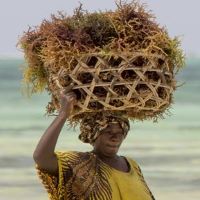

AquaInvest Platform
Authors
Tags
- AgTech (1)
- Seaweed farming (17)
- Gender (3)
- Research (1)
- Biodiversity (1)
- Guidelines (1)
- Seaweed (24)
- Fishery (8)
- Environment, Disaster Risk, and Climate Change (1)
- China (1)
- Region - East Asia and Pacific (2)
- Agriculture (17)
- Agriculture Data Platform (1)
- Korea (4)
- Ecosystem Services (3)
- Policy and Regulations (1)
- Climate Change Adaptation (4)
- Climate Resilience (5)
- Food Safety (3)
- Africa (2)
- Mariculture (21)
- Food Security (8)
- Policy - Food Security (1)
- Gender Equality (2)
- Blue Economy (31)
- Agribusiness (12)
- Climate Change (5)
- AFR Region (1)
- Environment (13)
- Policies and Legislation (2)
- Aquaculture (40)
- Indonesia (1)
- Nutrition & Diets (1)
- women (1)
Documents
Mapping aquaculture suitability in Zambia
The Government of Zambia has partnered with the World Bank, including the AquaInvest Platform , funded by PROBLUE , a multidonor trust fund administered by the World Bank, to carry out strategic
Sustainable aquaculture through the One Health lens
Aquaculture is predicted to supply the majority of aquatic dietary protein by 2050. For aquaculture to deliver significantly enhanced volumes of food in a sustainable manner, appropriate account needs to
COASTAL CONSERVATION AND SUSTAINABLE LIVELIHOODS THROUGH SEAWEED AQUACULTURE IN INDONESIA: A Guide for Buyers, Conservation Practitioners, and Farmers
Over one million coastal Indonesians engage in seaweed aquaculture, a unique and growing global industry for production of carrageenan and agar, direct consumption, and animal feeds, among other uses. Carrageenan
Kelps in Korea: from population structure to aquaculture to potential carbon sequestration
Korea is one of the most advanced countries in kelp aquaculture. The brown algae, Undaria pinnatifida and Saccharina japonica are major aquaculture species and have been principally utilized for human
An Ocean of Opportunities: The Potential of Seaweed to Advance Food, Environmental and Gender Dimensions of the SDGs
Within a sustainable ocean economy, seaweed collection, culture, processing, and trade is one of the sectors with the most opportunities to achieve sustainable growth by 2030. Seaweed farming culture is
Seaweed Farming: Assessment on the Potential of Sustainable Upscaling for Climate, Communities and the Planet
The United Nations Environment Programme (UNEP) recognizes the growing global interest in seaweed farming as a potentially scalable ocean-based solution to climate change that may provide environmental and social co-benefits
FAO-WBG SPECIAL DAY, WAS AFRICA 2023, Session 2: Technology, Innovation and Best Practices
The second session of the Special Day presented a general overview of relevant regional, FAO and World Bank initiatives on innovation and technology in aquaculture. Special attention was focused on
Mapping Cabo Verde aquaculture suitability zones
Locating optimal ocean areas to grow sustainable protein Cabo Verde government is devoted to creating space for sustainable food production in its oceanic water in the Atlantic, driving resilient blue
Options for Reducing Plastic Leakage to the Marine Environment from Capture Fisheries and Aquaculture
The Government of Indonesia's (GoI) National Plan of Action on Marine Plastic Debris (NPOA-MPD 2017-2025) outlines the ambitious objective of reducing marine plastic debris by seventy percent by 2025. Abandoned,
Selected publications on Aquaculture
Aquaculture and Food Safety Aquaculture practices to ensure safety of food produced from farmed aquatic animals A seafood risk tool for assessing and mitigating chemical and pathogen hazards in the